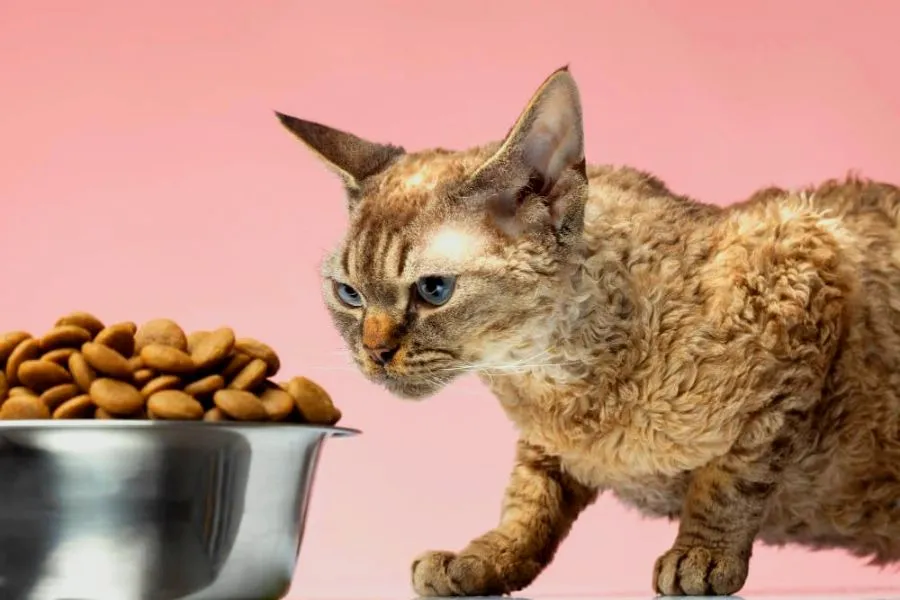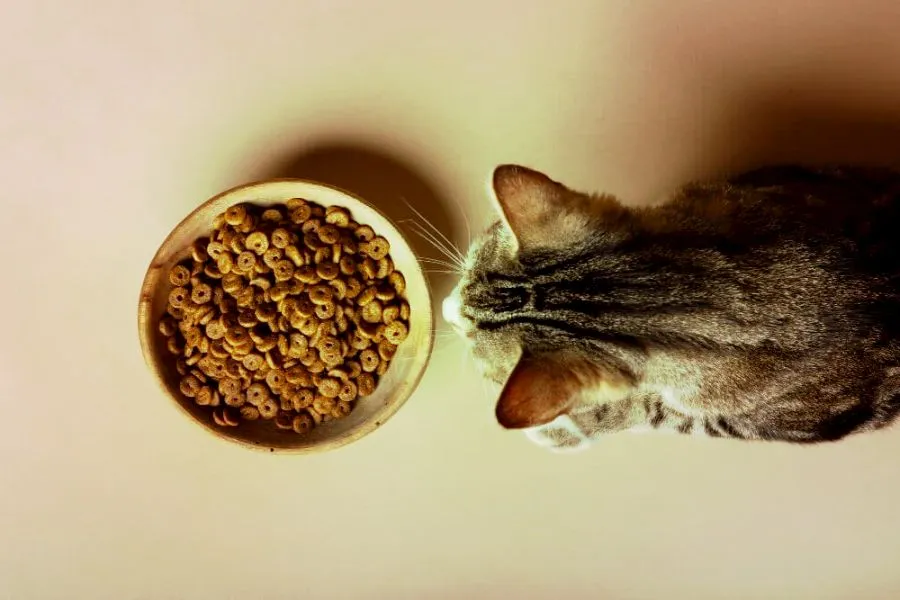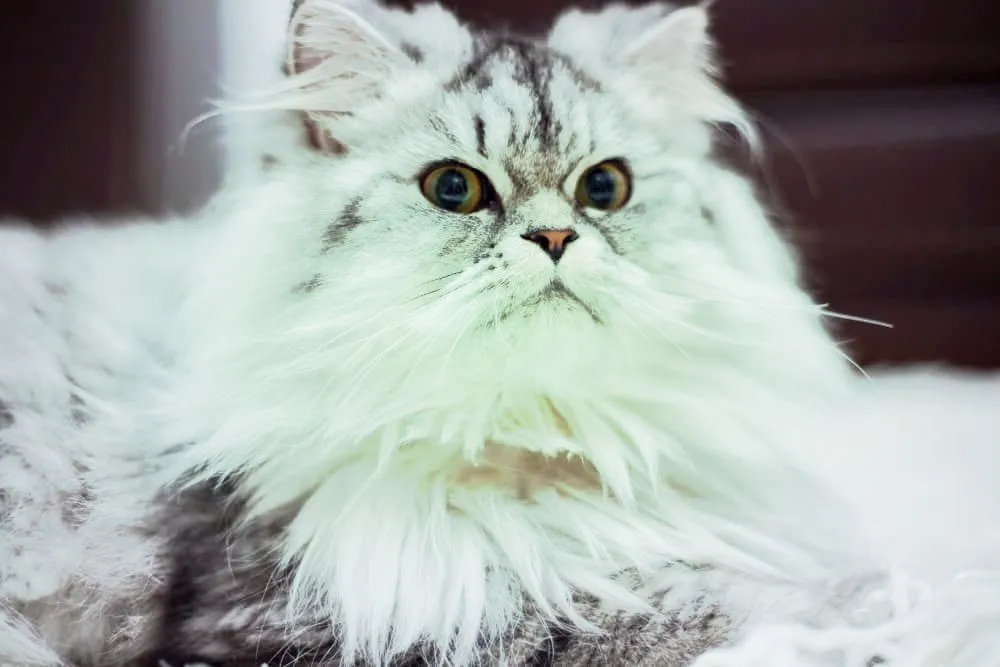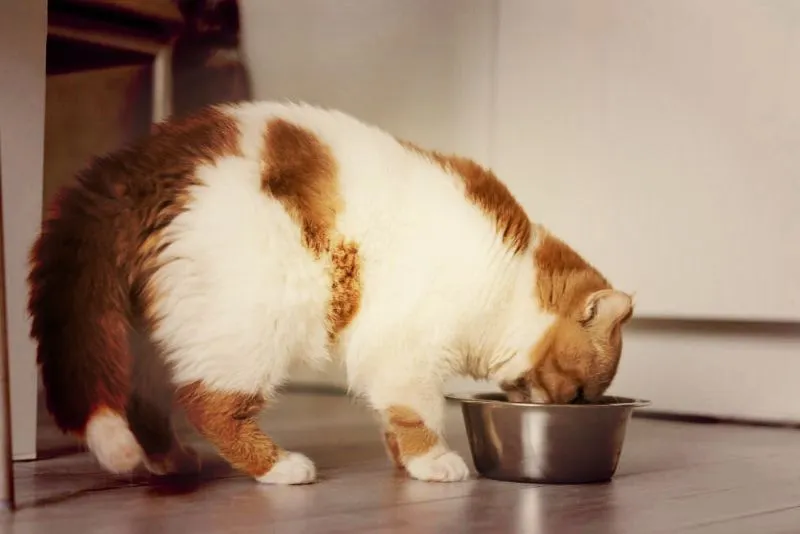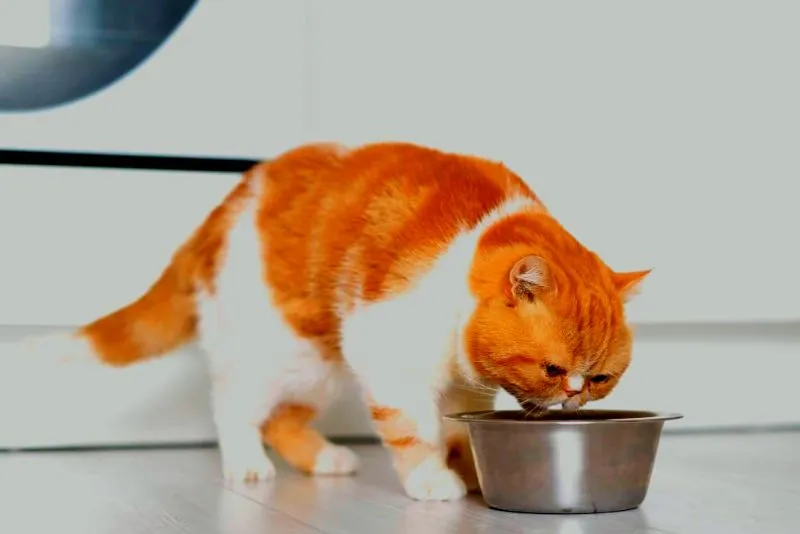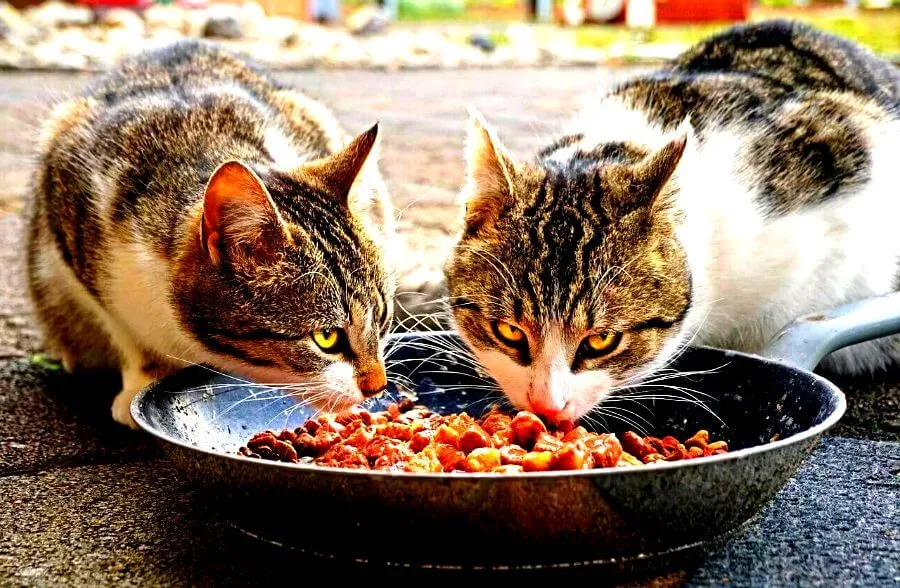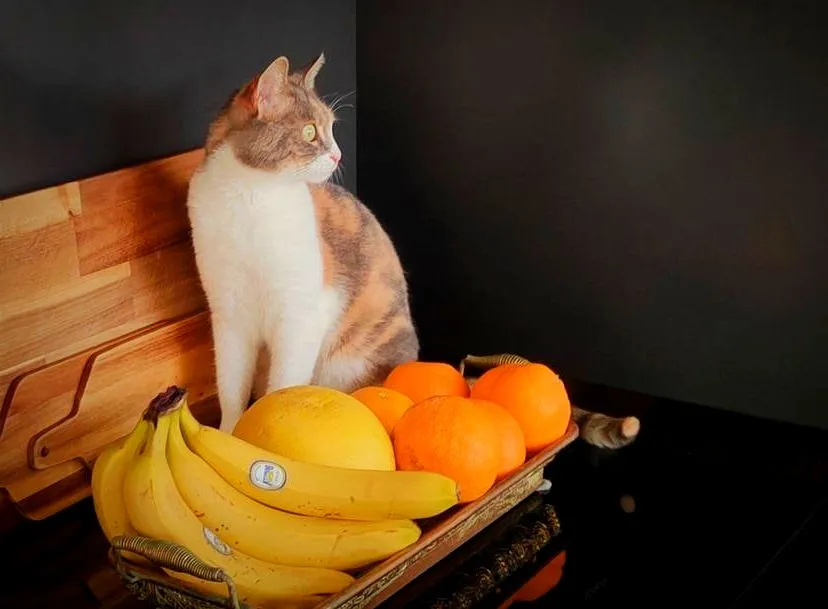
Cats can eat strawberries, blueberries, watermelon, and bananas in moderation. When it comes to feeding cats fruits, it is important to offer small portions and remove any seeds or pits that can be toxic to them.
A balanced feline diet primarily consists of high-quality cat food, but adding small amounts of fruits as treats can provide additional nutrients and variety.
However, not all fruits are safe for cats, and it is important to be cautious and avoid feeding them grapes, raisins, citrus fruits, or any fruit that may cause digestive issues or be toxic to felines.
Always consult with a veterinarian before introducing new foods into your cat’s diet to ensure their health and well-being.
Which Fruits Can Cats Eat?
Cats are known for being finicky eaters, but when it comes to fruits, there are a few options that can be safely incorporated into their diet. Apples are a popular choice, as they provide a good source of fiber and vitamins A and C.
Just make sure to remove the seeds and core before offering it to your feline friend. Blueberries are another nutritious option, packed with antioxidants and essential nutrients.
Cats can also enjoy small amounts of watermelon, which can provide hydration during the hot summer months. However, it’s important to remember that fruits should only be given as an occasional treat and should never replace their core diet of meat-based cat food.
Additionally, it’s always a good idea to introduce new foods gradually and monitor your cat for any signs of digestive upset. By following these guidelines, you can safely incorporate fruits into your cat’s diet and provide them with a well-rounded and nutritious meal plan.
Apples
Apples are a popular fruit among humans, but can cats safely enjoy them too? The answer is yes, but with caution.Apples are high in dietary fiber, vitamins A and C, and both.
However, before feeding apples to your feline friend, it is important to remove the seeds and core, as these contain cyanide and can be toxic to cats. Additionally, the skin should also be peeled off, as it can be difficult for cats to digest.
Once prepared, you can offer small, bite-sized apple slices to your cat as an occasional treat. It is essential to remember that while apples may be safe for cats, they should never make up the majority of their diet.
To guarantee your cat’s general health and well-being, always speak with your veterinarian before adding any new foods to their diet.
Banana
Bananas are a popular fruit that many people enjoy, but can cats eat bananas too? The good news is that bananas are safe for cats to eat in small amounts. They are a good source of potassium, vitamin B6, and fiber, which can be beneficial for your cat’s overall health.
However, it’s important to remember that bananas should only be given to cats as an occasional treat and not as a regular part of their diet.
So while bananas can be a fun and tasty treat for your furry friend, they should not replace their regular cat food. Additionally, it’s always a good idea to consult with your veterinarian before introducing any new foods into your cat’s diet, just to be on the safe side.
Blueberries
Blueberries are a popular fruit known for their antioxidant properties and numerous health benefits. But can cats eat blueberries? The answer is yes; cats can safely consume blueberries in moderation.
These small, sweet fruits are packed with essential vitamins and fiber that can support your feline friend’s overall health. Blueberries are low in calories and high in antioxidants, which can help boost your cat’s immune system and protect against cell damage.
However, it’s important to note that every cat is different, and some may have allergies or sensitivities to certain foods. As always, it’s best to introduce new foods gradually and observe any changes in your cat’s behavior or digestion.
Remember to wash the blueberries thoroughly and remove any stems or leaves before offering them to your furry friend. So go ahead and share a few blueberries with your cat as a tasty and nutritious treat!
Strawberries
Strawberries are a delicious and refreshing fruit that makes a tasty summer treat for humans, but can our feline friends enjoy them too? The good news is that strawberries are generally safe for cats to eat in moderation.
These sweet berries are packed with vitamins and antioxidants that can have health benefits for our furry companions. However, it is important to remember a few things before sharing strawberries with your cat.
First, always remove the green tops, as they can be difficult for cats to digest. Second, make sure to wash the strawberries thoroughly to remove any pesticides or residues. Lastly, introduce strawberries gradually into your cat’s diet and monitor for any signs of an upset stomach or food allergies.
As with any new food, it is essential to consult with your veterinarian before adding strawberries or any other human foods to your cat’s diet to ensure they are safe and appropriate for your feline friend.
Blackberries
Blackberries are a tasty fruit that many humans enjoy, but can cats also indulge in these berries? The good news is that blackberries are safe for cats to consume. Not only are they delicious, but they also offer some health benefits for our feline friends.
Blackberries are packed with vitamins and antioxidants that can support your cat’s immune system and overall well-being.
However, it’s important to feed blackberries to your cat in moderation. While they can be a healthy addition to their diet, too many berries can cause digestive issues such as diarrhea.
Always remember to wash the blackberries thoroughly and remove any stems before offering them to your cat. As with any new food, it’s best to introduce blackberries slowly and observe how your cat reacts. If you notice any negative effects, it’s best to discontinue feeding them this fruit.
Overall, blackberries can be a delicious and nutritious treat for your cat when given in moderation.
Cranberries
Cranberries, like many other fruits, can be a healthy addition to your cat’s diet. Rich in antioxidants and vitamins, cranberries offer several benefits for feline health. These tangy berries are known for their ability to promote urinary tract health by preventing the attachment of harmful bacteria to the bladder walls.
They also contain natural compounds that aid in preventing dental plaque formation and supporting oral health in cats. While cranberries can be safely consumed by cats, it is important to note that they should only be given in small quantities and as an occasional treat.
Excessive consumption may result in unsettled stomach or digestive problems. As with any new food, it is always best to introduce cranberries gradually and monitor your cat’s response. If you notice any negative reactions, it’s best to consult with your veterinarian for guidance.
Mangos
Mangos are a delicious treat for humans, but can cats also enjoy this tropical fruit? While cats are carnivores by nature, meaning their diet primarily consists of meat, small amounts of fruits like mangos can be added for additional nutrients.
Mangos are packed with vitamins A, C, and E, which are beneficial for cats’ immune systems and overall health. However, it is important to remember that fruits should only be given to cats as an occasional snack and should never replace their balanced cat food diet.
Before offering mangos to your cat, be sure to peel the skin, remove the pit, and cut the fruit into small, bite-sized pieces to prevent choking hazards. Additionally, always monitor your cat’s reaction to the fruit and consult with a veterinarian if you have any concerns about introducing new foods into their diet.
Pineapple
Pineapples is a delicious tropical fruit that is loved by many humans, but can cats also enjoy this sweet treat? The good news is that pineapple is safe for cats to eat in small amounts as an occasional snack.
However, it is important to remember that cats are obligate carnivores, which means that their main diet should consist of meat.
Pineapple should never replace their regular cat food or be given in large quantities. If you do decide to share a small piece of pineapple with your furry friend, make sure to remove the skin and the core, as these parts can be difficult for cats to digest.
Additionally, always monitor your cat after giving them pineapple to ensure they don’t have any adverse reactions, such as vomiting or diarrhea. As with any new food, it’s best to introduce pineapple slowly to prevent any tummy upsets.
Watermelon
Watermelon is a delicious summer fruit that many of us enjoy, but can cats also indulge in this juicy treat? Yes, but only after taking a few safety measures.
Watermelon is safe for cats to eat in small amounts and can even provide them with hydration due to its high water content.
However, it is important to remember that cats are obligate carnivores, and their digestive systems are not designed to process large amounts of fruits or vegetables. Therefore, watermelon should only be given as an occasional treat and in moderation.
Before offering watermelon to your feline friend, make sure to remove any seeds or rind, as they can cause digestive issues.
It is also a good idea to consult with your veterinarian before introducing any new food into your cat’s diet to ensure their safety and well-being.
So go ahead, share a small piece of watermelon with your feline companion, and enjoy watching them savor this sweet summertime fruit.
Pumpkin
Pumpkin is a safe and healthy fruit that cats can eat. This versatile fruit is low in calories and packed with essential nutrients such as fiber, potassium, and vitamin C. It can support digestive health in cats, especially those struggling with constipation or diarrhea.
The high fiber content in pumpkin helps regulate bowel movements and can alleviate digestive issues. Additionally, pumpkin is a great source of hydration for cats as it contains a high water content.
It can also aid in weight management by adding bulk to their diet without adding excessive calories. When feeding pumpkin to your cat, it is important to ensure that it is cooked and pureed, as raw pumpkin can be difficult for them to digest.
Offering a small amount of pumpkin as an occasional treat or mixed with their regular food can provide them with the health benefits they need.
Fruits To Avoid For Cats
Cats are carnivores by nature, and their bodies are designed to efficiently process meat-based diets. However, some fruits can be a healthy addition to their diet in small amounts. When it comes to feeding fruits to cats, it’s essential to keep in mind that not all fruits are safe for feline consumption.
While cats can tolerate certain fruits, there are others that should be avoided. Some fruits can be toxic to cats and may lead to digestive issues or even more serious health problems.
For instance, grapes and raisins are known to cause kidney damage in cats, while citrus fruits like oranges and lemons can potentially upset their stomachs.
Additionally, certain fruits such as avocados contain a substance called persin, which can be toxic to cats. It’s always best to consult your veterinarian before introducing any new foods to your cat’s diet, including fruits.
By following these guidelines, you can ensure that you are providing a safe and nutritious diet for your feline friend.
Grapes And Raisins
Grapes and raisins are among the common fruits that cat owners often wonder about. While many fruits are safe for cats to consume, grapes and raisins can be toxic. These fruits contain compounds that may cause kidney damage in cats.
Even a small amount of grapes or raisins can be harmful and potentially life-threatening for our feline friends. The exact reason why grapes and raisins are toxic to cats is still unknown, but it’s best to err on the side of caution and avoid giving them to your pet.
Instead, stick to safe fruits like apples, bananas, and watermelon, which provide essential nutrients and are less likely to cause any harm. Always consult with your veterinarian about any concerns regarding your cat’s diet to ensure they are receiving proper nutrition and staying healthy.
Pits, Seeds, Stems, Leaves
Cats are curious creatures, and it’s no wonder that they may be tempted to nibble on fruits. However, as responsible pet owners, it’s crucial to be aware of what fruits are safe for cats to consume. When it comes to pits, it’s generally best to avoid feeding them to your feline friend.
Pits can pose a choking hazard or even contain harmful substances. Seeds, too, should be removed before sharing fruits with your cat.
While some seeds may pass harmlessly, others can cause digestive issues or contain toxins. Stems and leaves should also be avoided, as they can be tough to digest and potentially toxic.
It’s important to note that not all fruits are suitable for cats, and some may cause stomach upset or other health problems. When in doubt, consult with your veterinarian before introducing any new foods into your cat’s diet.
Remember, a cat’s nutritional needs are different from our own, and it’s always better to be safe than sorry when it comes to their well-being.
Have any other Human Foods That Are Safe To Feed Cats?
Since cats are strictly meat eaters, meat should make up the majority of their diet. But cats can safely consume certain fruits in moderation.
One such fruit is bananas. Bananas are low in calories and high in potassium, making them a healthy snack option for cats.
Another fruit that cats can enjoy is watermelon. It is hydrating and contains vitamins A and C, although the seeds and rind should be removed before feeding it to cats. While blueberries are high in antioxidants, they are safe for cats as well.
To ensure your cat’s safety and well-being, it is best to speak with a veterinarian before adding any new foods to their diet.
To guarantee the safety and well-being of your cat, it is advisable to speak with a veterinarian prior to adding any new items to their diet.
A Final Word
To ensure the health and well-being of your feline companion, it is important to be aware of what fruits they can safely consume. While cats are obligate carnivores, there are certain fruits that can be a healthy addition to their diet in moderation.
However, it is crucial to be mindful of any potential allergies or adverse reactions. Always consult with your veterinarian before introducing new fruits into your cat’s diet to ensure their safety and overall health.
By following these guidelines, you can provide your furry friend with a balanced and nutritious diet.

